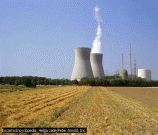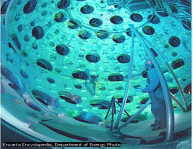Science and engineering principles have been applied in real-life situations in an attempt to find permanent solutions to specific problems that face humanity. The science of energy engineering seeks to focus on technologies for efficient and resourceful energy conversion and utilization targeting to meet the critical global challenge of sustainable supply and safe energy in the growing geopolitical uncertainty. Energy conversion, for instance, is a foundational activity that is very critical in mechanical engineering now and even in the past. “At first it was the steam engines, then a graduation to internal combustion systems of engines followed by the gas turbines and a further development to apply the science of low-temperature refrigeration” (qt. in Smith, p. 215).
Modern research is focused on the issues affecting contemporary society. Since most of the machines developed in the earlier centuries, like the combustion engine, were dependant on fossil fuel for their efficient running, it is obvious that the existing fossil fuel deposits are bound to be depleted due to overexploitation to meet the ever-increasing demand for this precious commodity. For this reason, there must be a shift to other energy forms which must be more reliable in terms of sustainability and also more environmentally friendly. “The adverse, unfavorable effects of the increasingly warming globe as a result of pollution, especially from the by-product emitted during energy conversion in fossil fuels, must then be put into consideration by coming up with better engineering technologies” (qt. in Singer 23). This is indeed essential for the survival of humanity and of course the co-existence with the other part of the eco-system.
Many engineers have in the recent past worked towards the realization of mankind’s most prioritized technological challenges. This has led to the diversification of engineering technology expanding research in solar, geothermal, and wind power systems. “Alternative sources of power like thermoelectricity, electrochemical cells, and fuel cells have been greatly exploited in the recent past” (Lawrence, pp. 5-23). Currently, engineering research spans over diverse technical fields ranging from the old combustion engines to hybrid engines, electronics, and their thermal management, energy-efficient construction of buildings, ocean energy, and other attributed aspects of nuclear energy. This intensive research process is usually accompanied by great creativity and synthesis of elaborate engineering designs with fundamental scientific principles of computation, experimentation, and analysis being applied
The engineering field of energy and technology involves using the already acquired skills to appropriately convert, produce, transfer, distribute and effectively use energy. Mankind demand for reliable and clean energy is incredibly increasing and since diverse forms of energy can be utilized to meet these achievable desires, it is essential that their effect on the environment is put into consideration while making use of the available but scarce economic resources.
Environmental engineering applies the principles necessary to improve and sustain the environment and to reclaim wasteland. This field of engineering has encoded laws that recommend proper waste disposal and also studies another form of negative environmental impact that could be a resultant consequence of proposed engineering projects. For instance, environmental engineers in the modern world unlike those of the earlier centuries are more concise and precise on natural resource, processing, and management, protecting the inhabitants of this planet from hazardous waste. This they have achieved by effectively treating, containing, and developing regulations to prevent catastrophes. The new generations of engineers are licensed and utilize their technical expertise very skillfully and tactfully especially when designing systems that supply clean water, industrial waste treatment systems for urban areas. Moreover, they have acquainted themselves with specialized training in law, diverse knowledge on environmental chemistry, environmental physics making them more competent and self-reliant.
Scientific and engineering ideologies are applied to evaluate any possible immediate or afterward adverse impact of new projects on the environment. Expected impacts are then prevented by developing the most appropriate mitigation measures. Therefore, it is clear that nearly all engineering projects directly or indirectly affect engineers and the population around them. It is also worth noting that all that surrounds us, buildings, dams, bridges, harbors, tunnels, and many more are planned and constructed by civil and environmental engineers. Modern world cities are non-existence without sophisticated systems to supply clean healthy water, drain sewages, control floods, and smoothly transport people, goods, and even services
to predestinated points with minimal stress and of course, reduce if not eliminate the negative environmental impacts of pollution like noise and hazardous waste amongst many others. Since good engineering respects the environment, modern technology emphasizes sustainable designs which is the answer to a society that is getting increasingly concerned about the dire consequences on its environment as a result of the rapid technological development it is currently experiencing. Modern society is only made possible by professional engineers, highly trained who not only possess adequate scientific knowledge but can also come up with operational systems with minimal damage to the environment due to resulting human activities.
Up to 1800, wood was the major fuel. This energy is a derivative of the solar energy that plants store throughout their lifetime. The industrial revolution then brought about the fossil dependency fuels-coal, petroleum, and natural gas which is also a derivative of stored solar energy. From applied science, engineers recognize that most fossil fuels have carbon and oxygen as the major components. Therefore, when these fuels are burned, water and carbon dioxide are produced as by-products but at the same time, an enormous amount of heat is released. This kind of energy is compared to the typical chemical reactions that result in alterations of electronic structures of given atoms. Adjacent fuel is kept hot by some part of the heat released; a repeating process that ensures this reaction does not stop. With modern science, however, advanced studies have shown that certain reactions do alter proton or neutron (the basic components of an atom) numbers, in the atomic nucleus. These kinds of reactions that alter the energy, composition, or structure of an atomic nucleus are termed nuclear reactions or radioactive reactions. “Since these reactions are rapid and in some cases spontaneous, the massive energy released could be destructive if not controlled” (Howard, pp. 4-22).
Nuclear engineering, an engineering branch concerned with designing and constructing nuclear reactors, devices, and other essential compartments enables the practical applications of nuclear fission. The resultant Energy from reactions can then produce commercial power.1954 saw the first practical nuclear physics application when Russian engineers built the first operational plant. Several countries then followed suit. The Palo Verde Nuclear Power Facility in Arizona, for instance, like other nuclear power plants, was built to harness nuclear energy for controlled use by humans.

This is an illustration of nuclear energy tapped at the Gundremmingen boiling water Nuclear power Plant reactor in Germany. Its first component stopped operating in 1983 following a decommissioning. This followed a further installation of cooling systems for the other two operational plants later in 1995.
Nuclear reactors are also used in the production of precise quantities of power for propulsion. Uncontrolled and intense particle bombardment do accompany nuclear reactions and generate extremely high temperatures, thus nuclear engineers have developed particular materials which are essential to withstand these conditions. The engineers have also put into place shielding techniques used for protection against harmful radiation that is reproduced by these reactions. Safe storage procedures and also proper methods of disposing of fissionable materials have been developed. Although nuclear power is inexpensive and does not create air pollution, its radioactive effects have caused deaths and environmental damages.
“Modern Nuclear engineering is already advanced to a higher level involving the use of laser for research on nuclear weapons and to explore the use of fusion as a possible energy source” (qt. in S&TR, pp. 6-16).

This picture shows an engineer standing inside the target chamber of the National Ignition Facility, the most powerful laser facility in the world. This is part of Livermore National Library in California. “When in use, there are numerous convergences of laser beams from all sides on a small sample of fuel at the center of the chamber” (True, pp. 61-69).
The fuel is heated and compressed by the laser beams to produce a fusion reaction. It is the nuclear engineers who generate the designs of such clean, safe, and yet deadly energy systems. Engineers and scientists have kept working on this project to see the realization of a self-sustaining nuclear fusion and energy gain for over half a century, its completion will be a great success indeed. It has been suggested that fusion, nuclear fission and solar energy (bio-fuels inclusive) are the predominant future energy sources that will confidently meet the earth’s need for power in the next century and centuries to come with minimal or no environmental impacts contrary to the fossil fuels. Fusion plants have no emissions of gases that change the global climate adversely. Instead, they do considerably lower these amounts and their radioactive by-products are less harmful to the environment. The risks from uncontrolled reactions are greatly reduced in the fusion processor systems.
The modern world is dynamic and will constantly keep changing with the change in technology. Engineering as a field therefore is always at par with these very essential changes so as to serve humanity at its best. As generations get more advance, the more the risks involved. Individuals who received training in other special engineering branches have in the recent years adopted safety engineering as specialty. This special engineering field has the main objective of accident prevention in the course of invention now and in the future.
References
- Tobin, M.T et al, Target area for Nova Upgrade: containing ignition and beyond, Fusion Engineering, 1991.
- True, M. A.; J. R. Albritton, and E. A. Williams, “The Saturn Target for Polar Direct Drive on the National Ignition Facility, LLE Review 1896.
- Lawrence Livermore World’s largest laser picks up the pace. National Laboratory, 2007.
- Howard T. Powell and Richard H. Sawicki, Keeping Laser Development on Target for the National Ignition Facility, S&TR, 1998.
- Singer, C., Holy, E. J., and Halyard, E. J., and Hall, A. R. A History of Technology. Oxford: Oxford University Press, 1954.
- Smith, N A. F. The origins of the water turbine and the invention of its name. History of Technology, 1977.